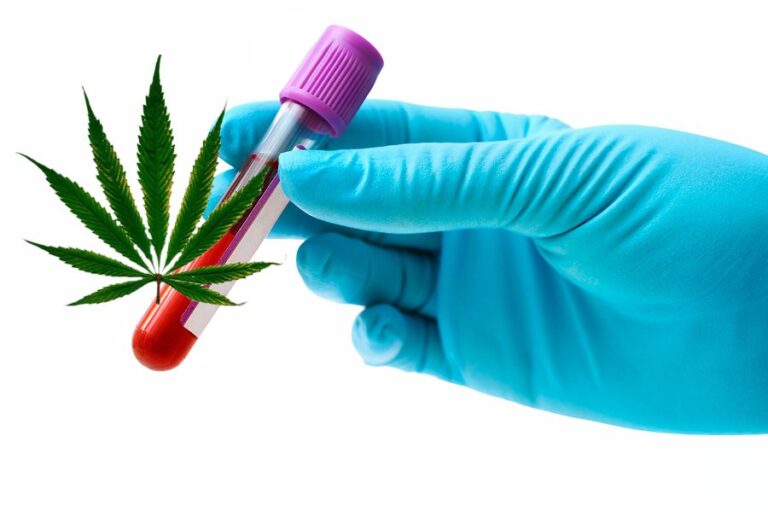Does Marijuana Affect Your CBC Blood Test Results?

In recent years, marijuana has become increasingly accepted both recreationally and medicinally. As its usage grows, many people are curious about how it might impact various aspects of their health, including routine medical tests. One common test is the Complete Blood Count (CBC), which provides a broad overview of a person’s overall health and helps in diagnosing various conditions. This blog post explores whether marijuana use affects CBC blood test results and what implications this might have for users.
Understanding CBC Blood Tests
A CBC is a fundamental diagnostic tool used to evaluate several components of the blood, including:
- Red Blood Cells (RBCs): These cells carry oxygen from the lungs to the rest of the body and return carbon dioxide for expulsion.
- White Blood Cells (WBCs): These are crucial for immune system function, helping to fight infections.
- Platelets: These cells are essential for blood clotting and wound healing.
- Hemoglobin: The protein in red blood cells that binds oxygen.
- Hematocrit: The proportion of blood volume occupied by red blood cells.
Each of these components is measured to provide insight into a person’s overall health, potential infections, anemia, or other disorders.
Marijuana and Its Impact on Blood Components
1. Red Blood Cells (RBCs) and Hemoglobin
There is limited evidence suggesting that marijuana might influence red blood cell counts and hemoglobin levels. Some studies indicate that cannabis use could lead to mild reductions in RBC counts or hemoglobin levels, potentially due to its effects on overall health and nutrition. However, these effects are not universally significant and may not be evident in all users.
2. White Blood Cells (WBCs)
Marijuana’s impact on white blood cells is of particular interest. THC (tetrahydrocannabinol), the primary psychoactive compound in cannabis, has been shown to influence the immune system. Some research suggests that THC can suppress immune responses, which might affect WBC counts. This could potentially lead to lower WBC counts, although the clinical significance of this reduction in a typical CBC test is not yet fully understood.
In contrast, some studies have suggested that chronic marijuana use might result in an increase in specific types of white blood cells, such as lymphocytes. This discrepancy might be due to varying individual responses or differences in study design.
3. Platelets
The effect of marijuana on platelet count is less well-documented. Anecdotal evidence suggests that cannabis might have a minor impact on platelet function, but comprehensive studies are lacking. Marijuana’s impact on platelet aggregation (the clumping together of platelets) might be influenced by other factors such as concurrent medication use or underlying health conditions.
Factors Influencing the Relationship Between Marijuana and CBC Results
Several factors can influence how marijuana use affects CBC results:
- Frequency and Quantity of Use: Regular or heavy cannabis use may have different effects compared to occasional use. The duration and amount of marijuana consumed can affect blood components differently.
- Method of Consumption: Smoking, vaping, or ingesting marijuana can lead to different physiological responses, which might influence blood test outcomes.
- Individual Health Conditions: Pre-existing health conditions, such as liver or kidney disorders, might interact with marijuana use and alter blood test results.
- Medications: Cannabis might interact with other medications, potentially influencing CBC results. It is crucial to consider these interactions when interpreting test outcomes.
Clinical Implications and Considerations
While marijuana might have some impact on CBC results, the changes are typically subtle and might not have significant clinical implications for most individuals. However, for those undergoing routine health check-ups or managing specific health conditions, it is important to inform healthcare providers about marijuana use. This transparency allows for a more accurate interpretation of test results and helps in distinguishing between marijuana-related effects and other potential health issues.
Healthcare providers should consider marijuana use as part of a comprehensive health assessment. They might need to account for it when diagnosing conditions or evaluating changes in blood components. If a CBC test shows abnormal results, further investigation might be required to determine if marijuana use is a contributing factor or if other underlying issues are present.
Conclusion
The impact of marijuana on CBC blood test results is an area of ongoing research. While some studies suggest that marijuana might influence various blood components, the effects are generally minor and may vary between individuals. Factors such as frequency of use, method of consumption, and individual health conditions all play a role in determining how marijuana affects blood tests.
For individuals using marijuana, it’s essential to discuss its use with healthcare providers, especially when undergoing routine blood tests or managing health conditions. This ensures that any changes in CBC results can be accurately interpreted and that appropriate medical decisions can be made based on a comprehensive understanding of the individual’s health and lifestyle.
If you have concerns about how marijuana might affect your health or blood test results, consulting with a healthcare professional can provide personalized advice and guidance.
Do you have further questions or concerns? Call us or contact the attorneys at Thomas & Ahnell, LLC, and we will be happy to help.

